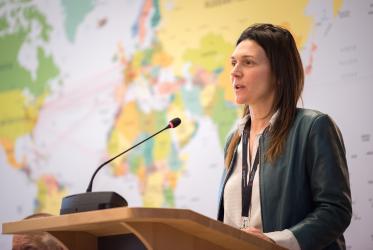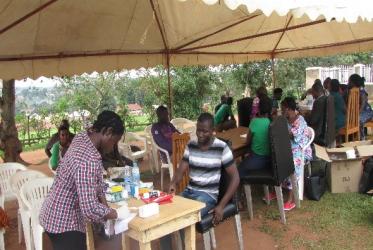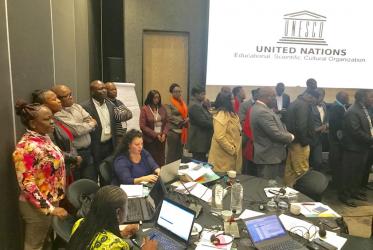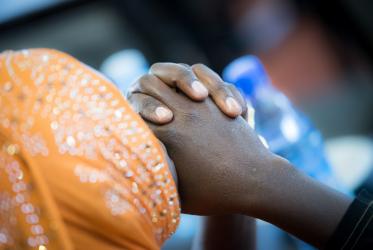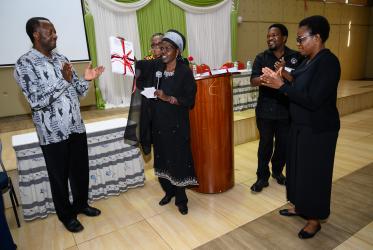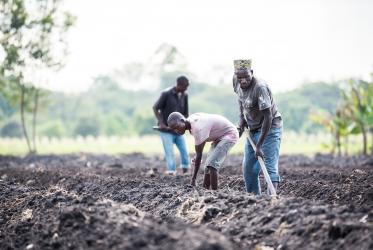Displaying 81 - 100 of 294
09 August 2019
WCC treatment manuals address HIV challenges in Uganda
02 August 2019
Knowledge of gender roles deepens in Togo
03 June 2019
WCC condemns massacre of farmers in Philippines
12 April 2019
El CMI condena el asesinato de campesinos en Filipinas
12 April 2019
A faith-based, holistic approach to HIV and AIDS-care
13 March 2019
Faith and HIV treatment go hand in hand
06 March 2019



